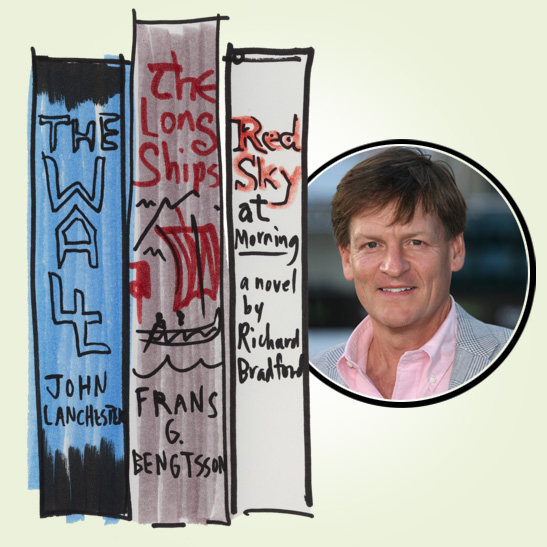Few writers are as deft as Lewis in connecting the personal with the forces of business, sports, government, and finance, making those abstract subjects come vividly alive through the people he profiles. His first book, Liar’s Poker, chronicled his own adventures as a bond salesman, but since then, in books such as Moneyball and The Blind Side, he has found his stories by telling the tales of others. The Fifth Risk, his most recent book, details the scary consequences to federal agencies when someone clueless about their operations becomes president. Here, Lewis shares three of the books he feels deserve more attention than they’ve received.
Red Sky at Morning, by Richard Bradford
This is a book that might easily have found the place in literature that wound up being occupied by The Catcher in the Rye. A coming-of-age story set during the Second World War that’s funny and moving and has charm to burn. I’ve always had a soft spot for writers who really only had one book in them. It supports my hunch that the magic is in the books, not the writers. Harper Lee wrote To Kill a Mockingbird when she was young, and then basically stopped writing. Giuseppe Tomasi di Lampedusa wrote very little until he was ancient and then generated The Leopard. Bradford wrote another book but nothing remotely like this one, which should be treated as an American classic.
The Long Ships, by Frans Bengtsson
More evidence in the case that you never know where a great book will come from, and so you’d do well to keep yourself open to the possibility that it might come from someone other than a Great Writer. Bengtsson—whose name I find so forgettable that I need to Google it every time I recommend his novel—was a Swedish poet, essayist, and biographer. He wrote no other work of fiction. But this one is simply magical. It’s the story of Röde (Red) Orm, a boy taken captive by Vikings who became himself a great Viking. It’s funny and so sharply observed that the reader winds up feeling that he knows exactly what it was like to be a Viking—indeed, that he might have been a Viking himself. It’s a novel that does what history wishes that it could.
The Wall, by John Lanchester
This one was only just recently published. Lanchester, a British novelist and essayist, has set his novel in a world after the climate has fully changed. I’m not quite sure how he has done it, but he’s managed to capture a future that is at once impossibly bleak, totally believable, and a pleasure to read about. It feels to me like the book that, in the American middle-school imagination, should replace 1984. As with that book—if we’re lucky—people may one day look back and say, “Thank God he predicted that future so we didn’t actually wind up living it.”

